Lawyers turned to a mixture of fiction and history when putting their feet up this summer
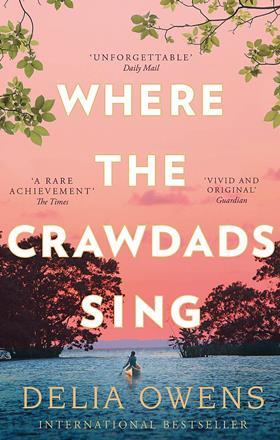
As a former prosecutor, I do like a crime novel, so I chose Where the Crawdads Sing (Corsair, £9.99), the debut novel by wildlife scientist Delia Owens, to read on a Seychelles beach. Published in 2018, it is a high-profile bestseller that I had been meaning to read for some time and finally did so to satisfy my ‘book-before-film rule’ (film released July 2022).
The back cover begins: ‘For years, rumours of the “Marsh Girl” haunted Barkley Cove, a quiet fishing village. Kya Clark is barefoot and wild; unfit for polite society. So in late 1969, when the handsome Chase Andrews is found dead, locals immediately suspect her.’ And, at a basic level, there it is – a whodunnit! However, the slightly corny back cover summary underplays the inherent complexities of the book. While murder mystery is the central theme of the plot, the narrative is much more about love, loss, longing, and acceptance, with an engaging coming-of-age story at its heart. Alongside this, the author’s naturalist expertise effectively makes the evocative setting of ‘the marsh’ a character of the novel in its own right (cliche, I know).
Although there is some predictability and some reliance on stereotypes (see ‘handsome’ above), I found this a well-written, poignant, and most enjoyable holiday read.
Nick Clapham is a senior lecturer at the University of Surrey
The funniest book about holidays I know is Three Men in a Boat by Jerome K Jerome (Reader’s Library Classics, £8.99) which begins, ‘There were four of us – George, and William Samuel Harris, and myself, and Montmorency. We were sitting in my room, smoking, and talking about how bad we were – bad from a medical point of view I mean, of course.’ They decide on a rowing boat holiday on the Thames. Written in the 1880s, it is as fresh and funny as ever. Less well known is Jerome’s Three Men on the Bummel (Digireads, £5.99) about a bicycle trip in Europe. It contains a description of when the author and his wife were on a tandem bicycle and his horror when he suddenly notices she is not on the bicycle.
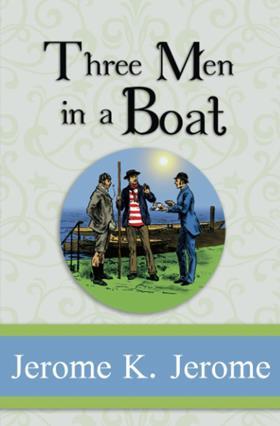
A good holiday book is John Mortimer’s A Summer’s Lease (Penguin, £16.99) a tale of a middle-class family who rent a villa in Tuscany. The father is a London solicitor who, maybe or not, has been carrying on with a client. There are similarities with a Sherlock Holmes story as there is a mystery about the owner of the villa. Mortimer is more famous for the Rumpole stories. He also wrote The Summer of a Dormouse: A Year of Growing Old Disgracefully (Viking, £20), which is a collection of anecdotes, including a remark that when you get over a certain age time goes so quickly it seems you have breakfast every five minutes. I know how he feels!
Nothing cheers you up more than a true crime. I enjoyed The Poisonous Solicitor: The True Story of a 1920s Murder Mystery by Stephen Bates Price (Icon Books, £18.99). This new book re-investigates the events of 100 years ago when Herbert Armstrong, a country solicitor, practising in Hay-on-Wye, was tried, convicted and later hanged for the poisoning of his wife. He was the only solicitor to be executed for murder. A number of books have been written about the trial which caused a sensation at the time.
Armstrong was an old-fashioned upstanding community stalwart. He was a former army officer and member of the Territorials, churchwarden and freemason. The book also includes professional rivalry from an upstart solicitor who opened up in practice opposite Armstrong. Superficially, the two were on good terms and the rival was invited to his home. Armstrong’s wife, the victim, was appalled at the man who turned up in tennis clothing. The rotter!
I also enjoy reading old books of legal reminiscences, mainly from the inter-war years. This was the golden age of advocates who were well known characters. I enjoyed Lord Darling’s Famous Cases by Dudley Barker, published in 1936 (Hutchinson, £7.72) and Criminal Days by Travers Humphreys, published in 1946 (Hodder and Stoughton, £5.66). Darling was quite a libertarian judge for the time. The book includes intriguing chapters, such as, ‘the bluebeard of the bath’ and the ‘clue of the crimson cloak’.
David Pickup is a partner at Pickup & Scott Solicitors, Aylesbury
Where the Crawdads Sing is a brilliant first novel by US wildlife scientist, Delia Owens. The power of her descriptive narratives clearly reflects her deep fascination with the natural world. The book is set in the coastal marshlands of North Carolina – clearly a land of rugged beauty with amazing bird and sea life (the land ‘where the crawdads sing’) but also a place where life is not easy for the subsistence fishermen and other people who make their lives there. In addition to the descriptions, the book has a very strong storyline. In many ways, it is a ‘rite-of-passage’ account of a girl who is the leading character and of her interactions with others who come in and out of her life. The book has quite a taut pace, which Owens manages to combine well with her lingering descriptions of how life is in the spread – out communities of the marshlands. The book really is an excellent read for any holiday.
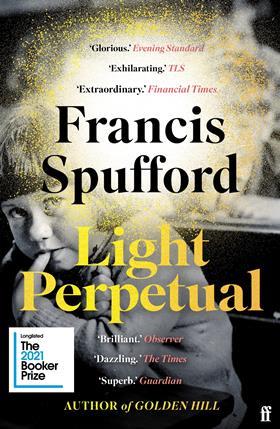
Light Perpetual by Francis Spufford (Faber & Faber, £8.99) was longlisted for the Booker Prize in 202. It is a series of vignettes of different people set at different stages of their imagined lives in England during the mid- to late-20th century and beyond, had they survived the early trauma of war. The book does not spare the rod on the themes that it covers but at the same time provides so many deep insights into the lives of characters that the reader cannot fail to be absorbed. The book is intensely moving in many places and the quality of the writing is superb. Because of the book’s layout with separate stories in separate sections (though cleverly interlinked in subtle ways), this is a book that can be taken up or put down and fitted around one’s holiday plans without too much difficulty.
David Glass is a consultant solicitor at Excello Law
In August, during a heatwave, we holidayed in Inishowen. Over the years, I have experienced many types of weather in Donegal but never five consecutive days with a temperature, in the shade, greater than 25 celsius (for that is the definition of ‘heatwave’ in Ireland). So, instead of sheltering from the rain in a local museum or heritage centre, we spent our days on the beaches of Shroove, Kinnagoe Bay and Five Fingers Strand. Before the holiday, a friend had given me the new book of poetry by John Kelly, a writer and broadcaster from Enniskillen now based in Dublin. All I had to do was decide which beach to read it on.

Space (Dedalus Press, £11) is John’s second collection of poetry and in it he continues to find the magic in the quotidian. Recurring themes include childhood, parenthood, memory and death. And birds. Lots of birds. John is a collector of place names and the vernacular; his poems are sequinned with the likes of ‘Breandrum’ and ‘a whole handlin’. And while these words and phrases are familiar to any native of Fermanagh, John’s universal themes render the poems accessible to all. Anyone, lawyer or civilian, will enjoy this collection – whether in a heatwave in Donegal or in front of a mid-winter fire.
Kevin McVeigh is a partner at Elliott Duffy Garrett, Belfast
This summer was my first venture abroad since lockdown, accompanying my wife who was on a singing tour of Rome, Umbria and the Vatican. To get in the mood I read Paul Strathern’s The Artist, the Philosopher and the Warrior: Leonardo, Machiavelli, Borgia: A Fateful Collusion (Vintage, £16.99). The title is bit of a mouthful but the book tells exactly that tale, taking the reader through a period which saw extraordinary artistic creativity. But it is also a period, starting with the burning of Savonarola and ending with the 1527 sack of Rome, of extraordinary cruelty and destruction. All three protagonists are well known, even to non-historians, but with the modern tendency to over-specialise the links between all three are often passed over. Paul Strathern does an excellent job in reminding us that the silos constructed around human achievements are often a barrier to our comprehension of the past.
For those who do not want their view of the past mediated through modern historians, turning to Machiavelli’s own words in The Prince: Niccolo Machiavelli (independently published, £5.99) is a great starting point. It is a slim volume that can slip into a pocket – just the thing to whip out when you need to pass a few minutes in the inevitable queuing modern travel subjects us to. It is one of those books whose fame is far in excess of its actual readership, but nevertheless after half a millennia it is still worth reading.
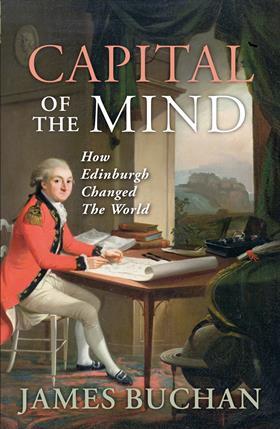
From Renaissance Italy to a place that has as good a claim as any to be the last European flowering of the Renaissance ideal – 18th century Edinburgh. I missed James Buchan’s Capital of the Mind: How Edinburgh Changed the World (Birlinn Ltd, £10.99) when it first came out but picked up a paperback copy last year when passing through Ullapool but only got around to reading it this summer. The extraordinary explosion of learning across both science and the arts in 18th century Edinburgh does not get the recognition it deserves (especially south of the border) but Buchan does it justice. Having read it, I was left thirsty for more knowledge of some of the great thinkers of the period such as Lord Kames (and I never knew Lord Mansfield’s sister ran dancing sessions).
I am always conscious that I do not read enough fiction, apart from poetry and the odd witness statement. However, I did start the summer with Flannery O’Connor’s Wise Blood. O’ Connor should be better known and deserves to be ranked with the greats of American literature. Who knows what masterpieces have been denied us when she died tragically young at 39, having suffered from lupus all her life? Wise Blood is a pretty strange little gem of a short story: I suspect literature departments would need to issue trigger warnings, especially when it comes to self-harming using caustic soda… but read it: It gives an insight into the strange psychology of the US Bible belt in the 1950s. Apparently the work has been made into a film, which is not surprising, but what is surprising is that the film is a comedy. Perhaps the producer had a strange sense of humour.
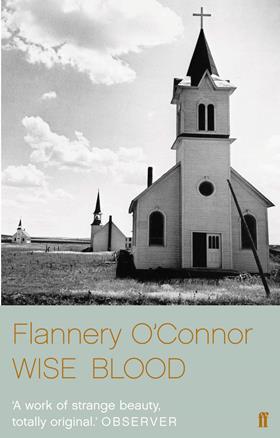
Here is a thought experiment to pass the time when the beach gets too boring: if there is a God, can you talk about him/her? The conceptual problem here is about the limits of (human) language to articulate the concept of transcendence. Hume, back in 18th century Edinburgh, would have split his sides laughing that anyone would think the question worth asking. However, you do not need hold particular religious views, or even believe in God to indulge in the thought experiment, one that treads a path leads from Augustine and Aquinas to Heidegger and Rorty. In Not Beyond Language: Wittgenstein and Lindbeck on the Problem of Speaking about God, Khay Tham Nehemiah Lim gives us some brilliant insights into the more mystical aspect of Wittgenstein’s work, and introduces (at least to me) the thinking of the American Lutheran theologian George A. Lindbeck. I first came across Wittgenstein in one of my earliest tribunal cases. I was inexperienced enough to think a closing submission was unnecessary in a particular case – the case was too straightforward to need it. Luckily for me the chairman (as employment judges used to be called) agreed, quoted the final paragraph of the Tractatus at me and found in my favour. I have had a soft spot for Wittgenstein ever since, notwithstanding he came from the other side of the Ringstrasse (Vienna’s historic inner ring) to my grandfather. Dr Lim has substantially increased my knowledge both of a broader range of Wittgenstein’s writing and his apophaticism.
Max D Winthrop is senior partner at Short Richardson & Forth, Newcastle
As a ‘Court of Protection deputy of last resort’ my work often involves being parachuted in at the final hour to salvage the finances of a vulnerable person. This is usually against a backdrop of family dispute and relationship breakdown. This can be life at its messiest, but often we find a way forward and draw family back in to work with us in the person’s best interests. There is sometimes, but not always, some resolution, even if there is no reconciliation.
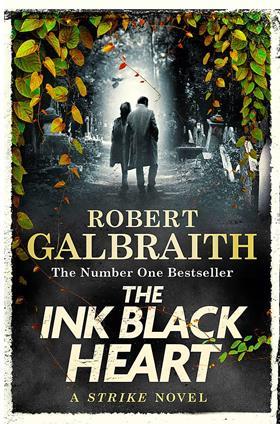
When it comes to relaxation and reading, I like crime fiction. This also takes you into a messy world, but usually there is a decent conclusion – and hopefully a measure of justice! So my summer reading will be The Ink Black Heart (Sphere, £25) by Robert Galbraith; the latest investigation by Cormoran Strike and Robin Ellacott. If anyone is unfamiliar with the series, I would suggest starting at Book 1 – The Cuckoo’s Calling. Then you can enjoy observing the working relationship between the two PIs, as it develops as well as the unravelling of a good crime mystery.
Sheree Green is director of Greenchurch Legal in Stoke-on-Trent, former chair of the Law Society Mental Health and Disability committee and member of the Office of the Public Guardian panel of independent deputies





























1 Reader's comment